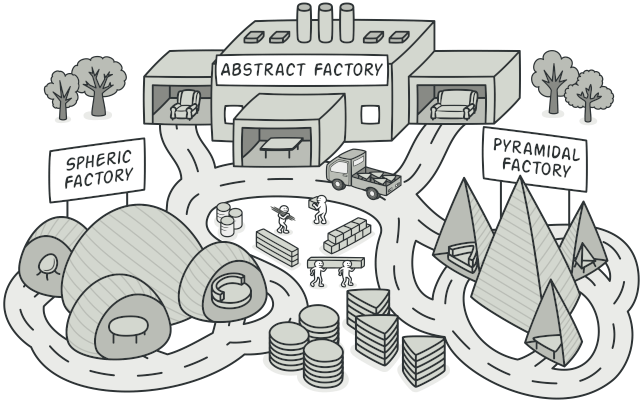The abstract factory pattern is used to provide a client with a set of related or dependant objects. The “family” of objects created by the factory are determined at run-time.

Example:
_Protocols:_
protocol CoffeeDescribe {
var ingredients: [String] { get }
}
struct Coffee: CoffeeDescribe {
let ingredients: [String]
}
protocol CoffeeMaking {
func make() -> CoffeeDescribe
}
Implementation:
final class IcedInstantCoffee: CoffeeMaking {
func make() -> CoffeeDescribe {
return Coffee(ingredients: ["Water", "Ice", "coffee", "creame"])
}
}
final class Espresso: CoffeeMaking {
func make() -> CoffeeDescribe {
return Coffee(ingredients: ["coffee", "milk", "water", "sugar", "cinnamon"])
}
}
Abstract factory
enum CoffeeFactoryType: CoffeeMaking {
case icedCoffee
case espresso
func make() -> CoffeeDescribe {
switch self {
case .icedCoffee:
return IcedInstantCoffee().make()
case .espresso:
return Espresso().make()
}
}
}
Usage:
let icedCoffee = CoffeeFactoryType.icedCoffee.make()
let espresso = CoffeeFactoryType.espresso.make()
print(icedCoffee.ingredients)
print(espresso.ingredients)